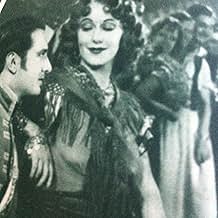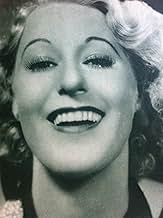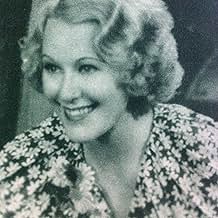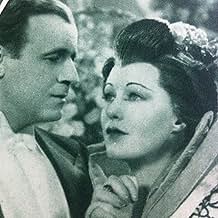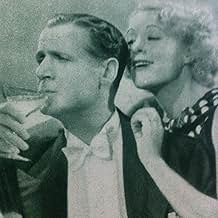Mary, an aspiring opera singer, trains under famed maestro Guilio Monterverdi. Their professional relationship turns romantic amid hard work and clashes, but jealousy and misunderstandings h... Read allMary, an aspiring opera singer, trains under famed maestro Guilio Monterverdi. Their professional relationship turns romantic amid hard work and clashes, but jealousy and misunderstandings hinder their love's expression.Mary, an aspiring opera singer, trains under famed maestro Guilio Monterverdi. Their professional relationship turns romantic amid hard work and clashes, but jealousy and misunderstandings hinder their love's expression.
- Won 2 Oscars
- 5 wins & 4 nominations total
- Galuppi
- (as Andres De Segurola)
- Bartender
- (uncredited)
- Undetermined Role
- (uncredited)
- Children's Music Teacher
- (uncredited)
- Radio Judge
- (uncredited)
- Cafe Owner
- (uncredited)
- Minor Role
- (uncredited)
- Stage Manager
- (uncredited)
- Vegetable Man
- (uncredited)
- Undetermined Role
- (uncredited)
Featured reviews
Exuberantly directed by Victor Schertzinger with some lavish sets, "One Night of Love" takes us into the enchanting world of opera, with all its joys and pleasures, difficulties and heartbreaks. Moore previously made two MGM movies, both of which were commercial disappointments. Then in 1934, Columbia Pictures gave the famed opera diva another chance; to their surprise, it scored a huge success and was ultimately nominated for some Oscars.
The film genially mixes popular ballads and grand opera. Moore is very beautiful and is endowed with a strong, haunting, and remarkably talented opera voice. In this film, Moore is aided by Tullio Carminati who plays her mentor and romantic interest. Her final performance at the Metropolitan Grand Opera packs a stirring punch.
Whereas in 'Jenny Lind' (or 'A Lady's Morals') and 'New Moon' she had bigger name stars like Wallace Beery and Lawrence Tibbett (much more of a fan of the latter though, can take or leave Beery as an actor whereas Tibbett was, and still is, an operatic giant as well as a remarkably vivid actor) alongside her, and more leading lady status than the "star". Here however, she is the star in the first of five films she made with Columbia (her previous two films being with MGM), and it is one of her better, a contender for the best even, collaborations with the studio.
There is not much to complain about here, at least to me. Then again it is highly dependent on whether it is your sort of film. The start of the film is not as clever or as exuberant as the rest, setting the tone for a very typical, clichéd want-of-stardom/back-stage drama film. There are also parts where lip-synching is sloppy, particularly in "Un Bel Di Vedremo". However, there is so much to recommend about 'One Night of Love'. The story easily could have been contrived, paper thin and overly-typical with the numerous misunderstandings in danger of over-complicating the drama, but while there is not much originality it is executed with such light-footed aplomb and exuberance and the misunderstandings so wittily written that what could have been a huge problem was not problem.
Not only that, but as a singer myself it was easy to relate to Moore's character Mary's goals and trials and there is so much truth to what is shown in the film (the wants to make something out of what you love and the trials involved as well as the rewards), which also has a very autobiographical and personal feel. The opera world is not glamorised or trivialised like it could have been, it is shown as rewarding and glitzy but it is also shown that what seems so idyllic on stage and on record is not so idealistically glamorous, it's hugely competitive and often stressful.
Visually, 'One Night of Love' is a lavish-looking film, beautifully shot and designed with sheer elegance and class. The music, done during a period where opera was used extensively in film to make it more accessible to a wider audience, is magnificent, not just the timeless operatic standards such as "Habanera" from 'Carmen', "Sempre Libera" for 'La Traviata', the sextet from 'Lucia Di Lammermoor' and "Un Bel Di Vedremo" from 'Madama Butterfly' but also the title song and "Ciriciribin". The writing sparkles from bubbles on top of a champagne glass, and Schertzinger's direction is a marvel. Narratively, highlights are the scene with the musical instruments playing and Mary starts to sing as a result and the triumphant and moving finale (a character overcoming the odds is not new territory but still it's very well done here).
Moore dazzles as Mary and it is easy to see how she was made a movie star (sadly though a short-lived one on film, and in real life), her singing is wonderful -if a little over-parted in "Sempre Libera", which didn't strike me as the sort of aria that seemed completely right for her voice- and she is an expertly comedienne too. Tullio Carminatti is also ideally cast, bringing wry humour and charm, while Jessie Ralph is particularly excellent in support.
All in all, notable for making a movie star out of Grace Moore in her third film (though first time as star rather than leading lady) but also a vastly entertaining and well-made film in its own right. 8/10 Bethany Cox
The film is your usual backstage story only with an operatic twist. Moore is an aspiring opera singer and as the picture opens she's singing the title tune which became a big hit at a radio station contest. The prize is a scholarship to study in Italy. Believe it or not, Grace Moore doesn't win, but she's determined and with her meager savings she goes to Italy and studies to become a great opera diva.
Along the way she gets involved with two men, voice teacher Tullio Carminati and American expatriate Lyle Talbot. Carminati also has a witch of an ex-pupil/girlfriend he's trying to dump, deliciously played by Mona Barrie.
But this is Miss Grace Moore's film and that's how she is billed here and would be for the rest of her film career. Grace Moore, who's all but forgotten today except for devoted opera fans, conquered four areas of entertainment; recordings, stage, grand opera, and finally film.
She was the best selling classical artist of her day. On Broadway in Irving Berlin's Music Box Revues she introduced several of his standards, most importantly the song Always. Her buxom beauty (she was a full-figured gal before Jane Russell made bra commercials) helped popularize opera for the masses. And after failing with MGM she finally did become a film star with this film.
Moore set off a couple of copycats in Hollywood with her success. 20th Century Fox signed Lily Pons and Paramount inked Gladys Swarthout to film contracts. Both these ladies fine singers that they were, never achieved even the limited success Moore had. The problem with signing opera singers is that you have to have them singing opera to show off their talent. That has a limited appeal and Moore too was finished in Hollywood in four years.
The film is curiously autobiographical in the same way Mario Lanza's That Midnight Kiss is. Moore plays a small town girl who wants to sing opera, just like the real Grace Moore. How often will the public go to see an opera singer, even a great one, play an opera singer? Moore played versions of Mary Barrett for the rest of her film career at Columbia.
Still the original is a tuneful treat. In addition to the title song and several arias, Moore also sings Ciribiribin which was a favorite song always requested at concerts and even at encores of her operatic performances.
At the time, Grace Moore got all the attention, as much for her shapely figure and for stepping down from her Metropolitan Opera pedestal as for her actual performance. Playing a soprano who spends her savings to study with a famous maestro in Italy, the 33 year-old Moore seems a bit of a late starter, but bounces around with lots of vivacity. Singing the title song and the inevitable "Ciri-Biri-Bin", she mostly avoids the pearls-before-swine tone of opera singers when they stoop to popular song, although she still sashays [especially as Carmen] and waves her arms too much for modern tastes.
Many decades later, it is clear that much of the charm was supplied by Tullio Carminati, an appealing comic actor with a wry quality, something like an Italian Walter Matthau. As Moore's mentor/romantic interest, he has a kind of offhand sophistication and the expert timing to support Moore's occasionally shaky line readings [of course, she's the one who got the Oscar nomination].
Director Victor Schertzinger soft-pedals the high culture, and manages several Lubitsch/Mamoulian moments: one amusing conceit has a building full of musicians all practicing different instruments in discord, until Moore unites the tunes with her impromptu rendition of "Sempre Libre" from LA TRAVIATA. Another enjoyable sequence presents singing a quartet from LUCIA as a strategy to avoid paying the rent. When the plot enters the tiresome misunderstandings phase, Schertzinger keeps the pace going until the finale, a staging of a scene from MADAME BUTTERFLY.
Throughout, Joseph Walker, Columbia's maestro of camerawork, softly lights Moore to utmost advantage, and even gets in a couple of zoom shots [in 1934!]
Did you know
- TriviaThis was the first film to win an Academy Award for Best Music Score (for Louis Silvers) as 1934 was the first year that an Oscar for this category was introduced.
- Quotes
Mary Barrett: I have $500 of my own. I'm taking that money and I'm going to Italy to study!
Mr. Barrett - Mary's Father: Italy?
Mary Barrett: Yes!
Mrs. Barrett - Mary's Mother: Why, that place is full of Italians!
- ConnectionsFeatured in The Soundman (1950)
- SoundtracksOne Night of Love
(1934) (uncredited)
Music by Victor Schertzinger
Lyrics by Gus Kahn
Sung by Grace Moore at a radio contest
Partially sung a cappella by Tullio Carminati twice
Played often in the score
- How long is One Night of Love?Powered by Alexa
Details
- Release date
- Country of origin
- Languages
- Also known as
- One Night of Love
- Filming locations
- Production company
- See more company credits at IMDbPro
- Runtime1 hour 24 minutes
- Color
- Aspect ratio
- 1.37 : 1
Contribute to this page


